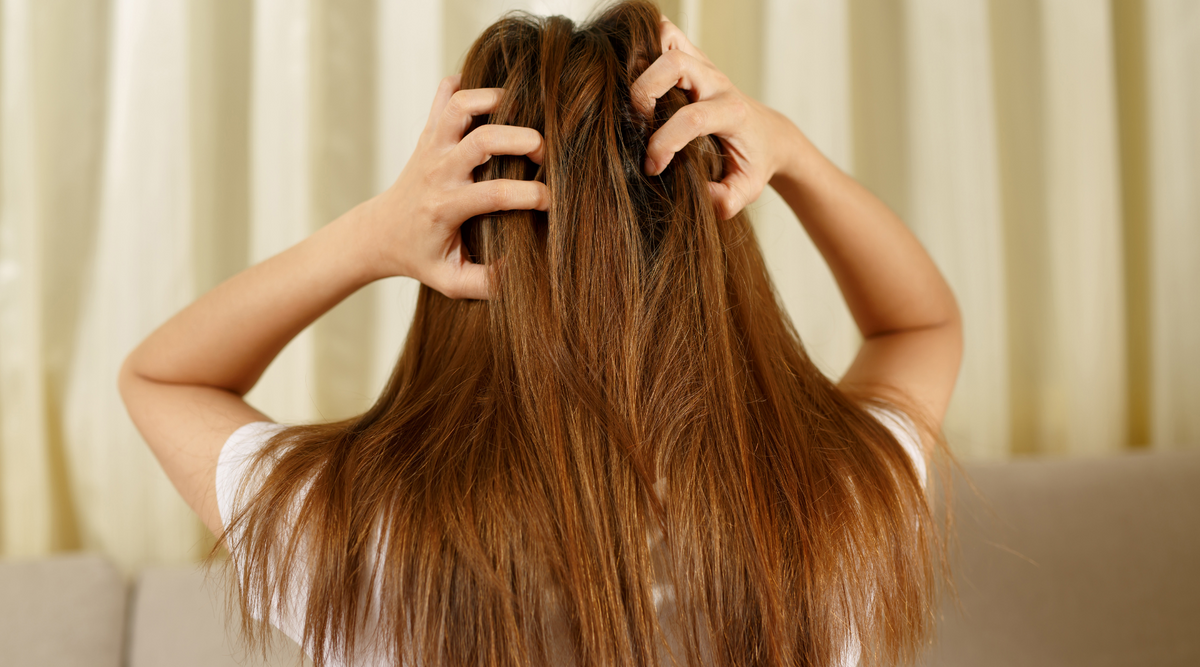Ah, winter. The season of cozy sweaters, hot cocoa, and... snowflakes in your hair? Nope, that's not the latest fashion trend; that's dandruff. And it's here to ruin your winter wonderland vibes. But fear not! We're here to help you understand why your scalp turns into a snow globe during the colder months and how you can fight back with the best ingredients known to (hu)man.
Why Winter Dandruff Happens
Winter dandruff is like an uninvited guest at your Christmas in July party—annoying and hard to get rid of. But why does it happen? Here's a quick rundown:
-
Dry Indoor Air: The heating systems that keep you warm also dry out the air, and your scalp suffers the same fate. This lack of moisture can lead to a dry, flaky scalp, which we commonly recognize as dandruff.
-
Hot Showers: They feel fantastic but strip your scalp of natural oils, leading to dryness and flakes. Over time, the lack of natural oils makes the scalp more susceptible to dandruff.
-
Hats and Beanies: While they keep your head warm, they also trap sweat and oil, causing irritation. The combination of moisture and heat creates a breeding ground for dandruff.
-
Lack of Sunlight: Sunlight helps regulate your scalp's oil production, and in winter, there's just not enough of it. This can lead to an imbalance in oil production, causing the scalp to become dry and flaky.
Causes of Winter Dandruff
Let's dig a bit deeper into the causes:
-
Dry Scalp: The most common culprit. Your scalp loses moisture due to dry air and frequent hot showers. This dryness leads to irritation and flakiness.
-
Seborrheic Dermatitis: This condition causes red, greasy skin covered with flaky white or yellow scales. Winter can exacerbate it, making dandruff more prominent.
-
Malassezia: A yeast-like fungus that lives on the scalp. It can grow out of control, leading to dandruff, especially when the scalp is dry and irritated. The imbalance caused by winter conditions can accelerate its growth.
-
Product Build-Up: Using heavy hair products can lead to build-up on the scalp, which mixes with dead skin cells and causes flakes. This is especially problematic in winter when washing frequency might decrease.
Best Ingredients in Shampoos for Winter Dandruff
Now, let's talk solutions. The right ingredients in your shampoo can make all the difference:
-
Aloe Vera: Known for its soothing and hydrating properties, Aloe Vera helps calm an irritated scalp and reduce dryness. It also has anti-inflammatory properties, which can help reduce the redness and itchiness associated with dandruff.
-
Amino Acids: They strengthen hair and scalp, providing the building blocks for healthy skin regeneration. They also help maintain moisture balance, preventing the scalp from becoming too dry.
-
Argan Oil: Rich in fatty acids and Vitamin E, it moisturizes the scalp and hair, reducing dryness and flakiness. It also helps restore the scalp's natural barrier, protecting it from further irritation.
-
Biotin: This B vitamin supports hair health and growth, ensuring your scalp stays in good condition. It helps strengthen hair strands, reducing breakage and promoting a healthier scalp environment.
-
Salicylic Acid: This ingredient helps exfoliate the scalp, removing dead skin cells and preventing them from clogging hair follicles. By keeping the scalp clear, it reduces the chances of dandruff formation.
-
Tea Tree Oil: Has antifungal and antibacterial properties that help fight dandruff. It penetrates the scalp to clear out the dandruff-causing fungus, reducing flakiness and itchiness.
Additional Tips for Managing Winter Dandruff
In addition to using shampoos with the right ingredients, here are some extra tips to keep dandruff at bay:
-
Avoid Hot Showers: Opt for lukewarm water to avoid stripping your scalp of natural oils. This helps maintain the moisture balance necessary to prevent dandruff.
-
Use a Humidifier: Adding moisture to the air can help keep your scalp hydrated. A hydrated scalp is less likely to become dry and flaky.
-
Wear Breathable Hats: Choose hats made from breathable materials to reduce sweating and irritation. This prevents the warm, moist environment that dandruff thrives in.
-
Maintain a Good Hair Care Routine: Regularly washing and conditioning your hair with the right products can make a big difference. This helps remove excess oils and dead skin cells, keeping your scalp healthy.
This Too Shall Pass
Winter dandruff doesn't have to ruin your season. By understanding the causes and using shampoos with the right ingredients, you can keep your scalp healthy and flake-free. So next time you see those pesky flakes, remember: you have the power to banish them. Now go forth and enjoy your winter wonderland—sans the dandruff!
Liquid error (sections/main-article line 100): Could not find asset snippets/social.liquid

0 comments